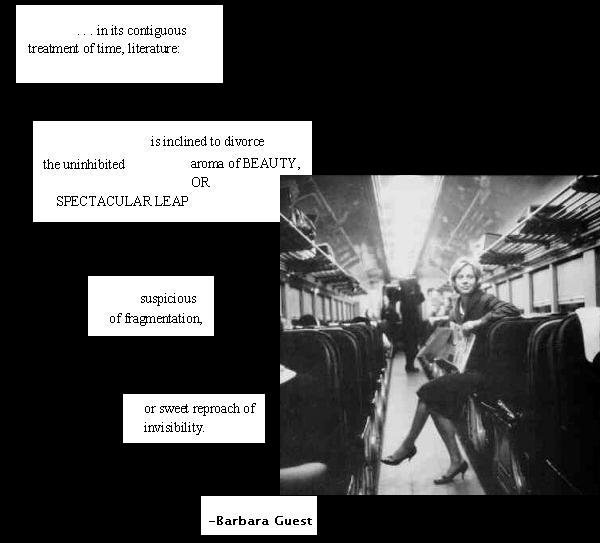Duane Clinton Extra Credit Paper #1 English 1002 Winter 2007 Bentley 1/11/2007
I recently had one of the most incredible language experiences of my life, lasting for 2.5 months, wherein I attended lectures by Professor Emeritus Paul Bassen, and did extensive reading in Ludwig Wittgenstein’s "Philosophical Investigations", focusing, for example, on the Wittgensteinian notion that all language is language-games, and, upon the notion that thought/thinking transpires as language/language-games. Herein I will explain what Wittgenstein means by ‘language-game’, and give some indications of what Wittgenstein considers thinking to be.
My current lack of familiarity with and inability to think in terms of the language of rhetorical analysis is prima facie indicative of the equivalence of language and thought. Absent consciousness of the language of rhetorical analysis I cannot think critically in the mode of rhetorical analysis.
As part of my studies with Dr. Bassen I was placed under the necessity of formulating Wittgenstein’s aphorisms into my own words. In what is subjoined I am employing my formulations of Wittgenstein’s thought:
During the course of his philosophical description of language Wittgenstein frequently references the operation of games. Chess and chessmen are repeatedly employed in Wittgenstein’s descriptions of what language is and does. His ongoing descriptive references to the structures/components/functions of games shows Wittgenstein deems it possible to illuminate and describe the structure and function of human language by analogy to worldwide historically established gaming/games.
When one plays another person in the milieu of man’s conventional chess-game-formulation, (i.e., within the established rules of en passant; castling; en guard; queening; checking; etc.), which constitutes the way chess is played, using the divers pre-determined actions of the many different kinds of chess pieces, one engages oneself in the possibility of thinking/enacting any contingent series of possible thoughts/actions-in-chess-game-mode, which contingent-yet-determinate-chess-acts can culminate in the upsurge of one particular pre-determinate-chess-thinking-acting resultant: checkmate. One acts/thinks/culminates chess only within the particular game-milieu that is chess. Analogously, doing interpersonal-language-communication is alike doing a chess game, that is, one thinks/acts wholly within conventional/pre-established milieus of communicative formulations (e.g., within the milieu of conventional rhetorical analytic constructs), and, using many different kinds of words/actions, (as many as there are language-games), one can communicate/culminate any contingent series of possible thoughts/actions. What one may intentionally or unintentionally communicate is contingent, however, the way that contingent state of affairs is to be communicated is entirely determinate/pre-determined by the particular language-game being employed, that is what I mean by "contingent-yet-determinate". I’ll bet rhetorical analysis is constituted by a given pre-established/pre-determined series of language structures, i.e., words and phrases and propositions, used to characterize other language structures. Whatever a proposition may arise as, within the free and spontaneous formulation thereof, it may, by the pre-determined structures of the language-game of rhetorical analysis , be characterized as transpiring inside or outside of certain pre-established and accepted norms/standards of rhetorical communication. Precisely as the game of chess proceeds and culminates within pre-established norms of action, and not otherwise, rhetorical analysis proceeds and culminates in accord with certain norms of characterization of language structures other than itself, and, it does not proceed otherwise, it remains within the pre-established bounds of the language-game that is rhetorical analysis, and, it is only within those pre-established bounds that I shall learn to think rhetorically analytically.
In chess one acts/thinks only within the particular milieu that is the given/extant/established modus operandi of the game of chess; in rhetorical analysis one acts/thinks only within the particular milieu that is the extant/pre-established modus operandi of rhetorical analysis. For Wittgenstein all gaming and all language proceeds outside, in the world, or, more particularly, in the sociosphere. For Wittgenstein thought is not mental, thought is not transpiring within the interiority of a human subjectivity. For Wittgenstein all attempts to seize upon and describe for one’s self the operations of an interior subjectivity fail. Wittgenstein finds only language, only linguistic structures which are long pre-established by tradition as just plain "what we do". What we do is speak and act in accord with long pre-established modes of speech acts, the English language which I employ is a structure which pre-exists me by many centuries, it is in English that my interiority quietly enunciates predetermined vehicles of expression
Church of the Light by Tadao Ando

Subscribe to:
Post Comments (Atom)


No comments:
Post a Comment